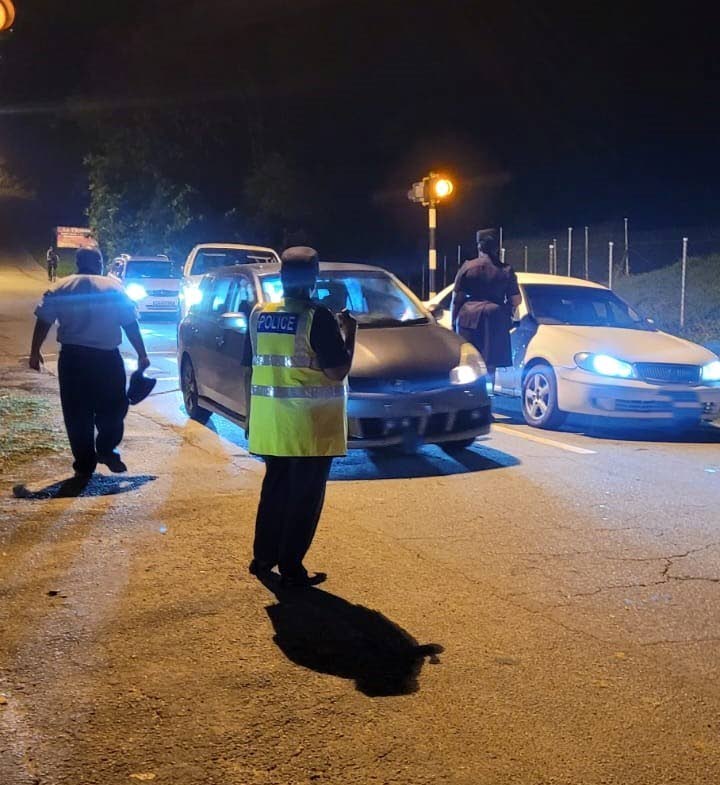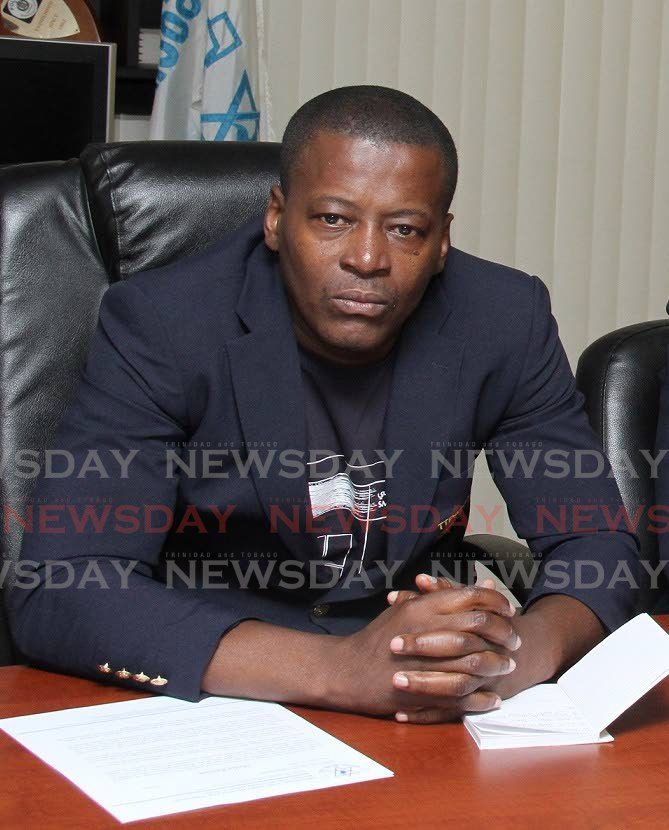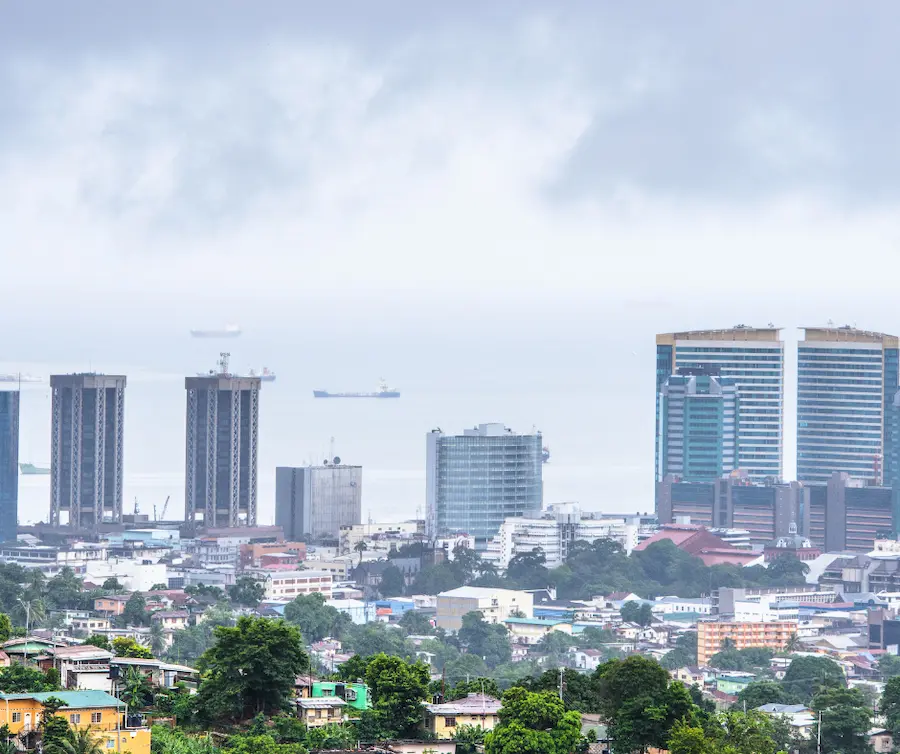

TRINIDAD and Tobago Police Service Social and Welfare Association president Gideon Dickson has described the Prime Minister's press conference on January 3 as a "slap in the face" of officers as he neglected to address, in a meaningful way, the service's lack of resources.
Dr Rowley said he expected violent crime to decrease after the state of emergency (SoE) and called on police to weed out rogue officers who destroy the public's trust and confidence in the servcie.
Dickson said officers are doing their best with the resources at hand but complained that it is becoming increasingly difficult to function effectively with what they have at their disposal.
"The reality is, we continue to be asked to do more and are given less and we are measured the highest."
His comments came five days after the government declared a SoE to treat with gang violence which threatened to disrupt public safety.
>
He continued: "I kind of get emotional when these things happen but the truth be told, police officers are human beings too and you cannot ask and demand more and give less."
To begin with, he said the service is short of its sanctioned strength of over 7,800 officers by some 1,400. Coupled with the labour shortage, he said, there is ongoing "mass attrition" daily and monthly.
He said there is a proposal to absorb officers from the Special Reserve Police force to fill the vacancies, which was sent to the Minister of National Security and the junior minister in May 2023.
"To date, we sit here nowhere closer to absorbing officers to enhance the strength of the TTPS so that we could be more effective in operations."
He said the 1,000 additional officers promised in the 2023/2024 budget never materialised.
"Do a fact check: how much did we get to date? Just over 200 officers. And yet still attrition taking place."

He said officers are being faced with burnout as, since 2019, increasing demands have been made of them and, as a result, leave is being restricted. This, he said, is only exacerbated by issues with getting officers promoted.
Dickson said there is also a shortage of equipment which leaves the police vulnerable in heightened operations during the SoE.
>
"Where are the bulletproof vests for officers? Where are the non-lethal weapons for our officers?"
"It pains me, it irks me to say we often run to cast blame and point fingers and we don't look at what is actually happening on the ground. My men and my women deserve better. We have an entire family and an entire community that is depending on us, but not enough is being given to us."
For security reasons, Dickson was unwilling to go further into details about the issues officers are facing with the bulletproof vests. Several have complained that their body armour is outdated. Police have also complained about the lack of proper functioning vehicles, some of which do not have sirens or flashing blue lights.
He said while officers are not seeking open confrontation, they require weapons that could match up to the firepower being used by criminals.
"Right now, all you are getting on a crime scene are 5.56 ammunition, 7.62 ammunition – things that are geared for mass destruction, because it's high-powered weapons they are using."
He cited the revelation that prosecutors from the Office of the Director of Public Prosecutions would be abstaining from court last week owing to trauma and fear for their safety after special prosecutor Randall Hector was gunned down on Old Year's night after leaving the Seventh-Day Adventist Church at Stanmore Avenue in Port of Spain.
"So they don't want to prosecute, because they need protection. But my officers are not afforded no protection and we have been doing this time and time again, and no one is seeing it fit to protect us. No one is trying to meet us half the way. Hear our cries."
At his press conference, the Prime Minister said the government would provide all "reasonable support" to officers during the SoE.
Questioned by a reporter about recurring claims of a lack of resources, Dr Rowley said: "As we delayed getting to the point of a SoE ...we have done a number of things, one of which, is to ensure that our agencies, police in particular, are properly resourced. You would have seen that in the budgeting process and in the acquisition process and you would have seen what we have been doing all along."
>
He added: "I mean, there's always room for improvement. You need more money, you need more this, you need more that – but that's an ongoing operation. What has to be done now is not bellyaching about this, that and the other. It is getting on with the job with what we have. That's what I expect to happen now."
Calls and WhatsApp messages to Minister in the Ministry of National Security with responsibility to the police Keith Scotland and Deputy Commissioner of Police Junior Benjamin, who is in charge of operations, went unanswered.
A police release on January 4 said over 1,011 searches were carried out in the first five days of the SoE across the country.
It said these efforts led to 126 arrests and the seizure of 17 guns and 675 rounds of ammunition.
Police Commissioner Erla Harewood-Christopher complained in a statement on January 1 that the threshold to gather evidence against suspected gang members was too high. The SoE allows police to enter homes and search people with no need for search warrants.
Police have also complained that under the Administration of Justice (Indictable Proceedings (Amendment) Act, the threshold to obtain warrants from a Master of the High Court was too high and often delayed their ability to act swiftly to recover guns and drugs.


